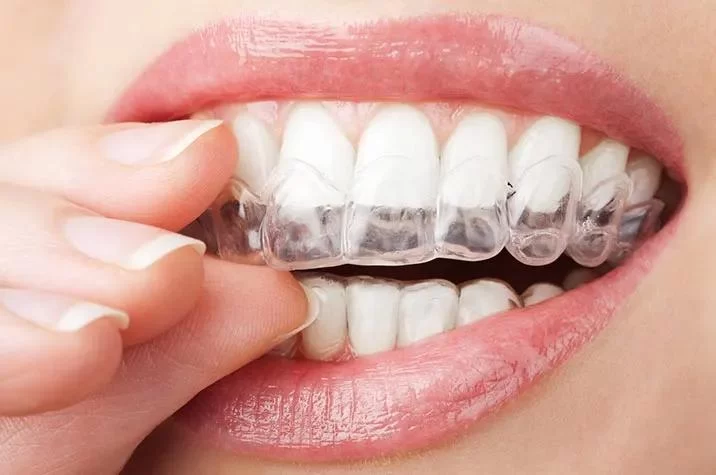
- why-winter-affects-sensitive-teeth
- common-triggers-of-winter-tooth-sensitivity
- how-to-protect-sensitive-teeth-in-cold-weather
- daily-care-routines-to-prevent-winter-sensitivity
- real-experiences-and-customer-stories
- when-to-seek-professional-help
1. Why Winter Affects Sensitive Teeth
As the temperature drops, many people find themselves wincing from a sharp pain when stepping outdoors. That sudden sting? It could be winter-induced tooth sensitivity. Cold air can penetrate enamel cracks or exposed dentin, triggering discomfort in sensitive teeth during winter.
Unlike other seasonal issues, tooth sensitivity in winter is not always obvious until the chill hits. Whether you're sipping hot coffee or taking a brisk morning walk, the contrast between temperature extremes can aggravate nerve endings in compromised teeth.
2. Common Triggers of Winter Tooth Sensitivity
2.1 Cold Air Exposure
Breathing through your mouth in freezing temperatures can lead to direct cold exposure on your teeth, especially if enamel is thin or gums have receded. This triggers a pain response in sensitive areas.
2.2 Temperature Swings
Going from a warm indoor environment to icy outdoor air causes rapid changes in temperature around the teeth. This can cause the dental tubules inside teeth to expand and contract, which leads to discomfort, especially in previously treated teeth.
2.3 Dry Mouth and Dehydration
Heated indoor air can dry out the mouth, reducing saliva’s protective effect. Saliva helps neutralize acid and protect enamel, and its absence can increase sensitivity over time.
3. How to Protect Sensitive Teeth in Cold Weather
3.1 Cover Your Mouth Outdoors
Wearing a scarf or mask over your nose and mouth helps prevent cold air from hitting your teeth directly. It also keeps your mouth warmer, which reduces sensitivity.
3.2 Switch to a Sensitivity Toothpaste
Toothpastes designed for sensitive teeth contain compounds like potassium nitrate or stannous fluoride. These ingredients help block nerve signals and strengthen enamel. Use them twice daily, and don't rinse right after brushing to allow maximum absorption.
3.3 Limit Acidic and Sugary Foods
Winter holidays often come with sweet and acidic treats. However, these can erode enamel and worsen sensitivity. Rinse your mouth with water after consuming acidic foods and wait at least 30 minutes before brushing.
For tailored product advice and oral care essentials ideal for the colder months, our experts at Dentistry Toothtruth can guide you to the best products for managing sensitive teeth during winter.
4. Daily Care Routines to Prevent Winter Sensitivity
4.1 Gentle Brushing Techniques
Use a soft-bristled toothbrush and brush gently. Avoid aggressive brushing, which can wear down enamel and expose dentin. Opt for a gentle circular motion rather than horizontal scrubbing.
4.2 Use Fluoride Mouthwash
Fluoride helps remineralize enamel and reduce sensitivity. Rinse once daily with a fluoride mouthwash, preferably at night, to strengthen your teeth while you sleep.
4.3 Stay Hydrated
Drink plenty of water to keep your saliva production stable. Saliva plays a vital role in neutralizing acids and maintaining a healthy mouth environment, especially in the winter when indoor heat can lead to dehydration.
5. Real Experiences and Customer Stories
5.1 Oliver’s Outdoor Sensitivity Challenge
Oliver, an avid winter runner from Minnesota, found himself struggling with sharp tooth pain on his morning jogs. After a consultation, he started using a high-strength fluoride toothpaste and began covering his mouth with a wool scarf. Within two weeks, his symptoms dramatically reduced.
5.2 Grace’s Post-Holiday Sensitivity
Grace indulged in sweet treats over the holidays and noticed her front teeth became highly sensitive. After switching to a sensitivity toothpaste and reducing acidic foods, her discomfort subsided within days. Her dentist also recommended regular checkups during seasonal changes to stay ahead of issues.
6. When to Seek Professional Help
6.1 Persistent or Worsening Pain
If tooth sensitivity doesn’t improve after two weeks of home care, or if pain becomes severe, it's time to see a dentist. Issues like hidden cavities, enamel erosion, or gum disease may be at play.
6.2 Treatments for Long-Term Relief
Your dentist may recommend fluoride varnishes, bonding treatments, or even a custom-fitted night guard if grinding is worsening the condition. These treatments help protect vulnerable areas and reduce pain triggers.
6.3 Trust the Experts
Managing sensitive teeth during winter doesn’t have to be a seasonal struggle. Whether you need a personalized care routine or product recommendations, Dentistry Toothtruth is here to help you stay comfortable and protected all winter long.







 Shawn O'Berry DDS5.0 (26 review)
Shawn O'Berry DDS5.0 (26 review) The Endodontic Group: Milford4.0 (46 review)
The Endodontic Group: Milford4.0 (46 review) Swiatek Orthodontics4.0 (27 review)
Swiatek Orthodontics4.0 (27 review) Pearl Dental Arts5.0 (2 review)
Pearl Dental Arts5.0 (2 review) Crimsoncare Family Dental5.0 (248 review)
Crimsoncare Family Dental5.0 (248 review) Children's Dental Health of Plymouth Meeting4.0 (352 review)
Children's Dental Health of Plymouth Meeting4.0 (352 review) The Importance of Oral Health Education During Pregnancy for a Healthy Pregnancy
The Importance of Oral Health Education During Pregnancy for a Healthy Pregnancy Best Tips for Brushing Your Teeth Properly for Healthy Gums: Essential Techniques for Oral Health
Best Tips for Brushing Your Teeth Properly for Healthy Gums: Essential Techniques for Oral Health Why Skipping Dental Checkups Can Lead to Bigger Oral Health Problems
Why Skipping Dental Checkups Can Lead to Bigger Oral Health Problems Advantages of Porcelain Dental Restorations
Advantages of Porcelain Dental Restorations How Can Diabetes Cause Tooth and Gum Problems? Preventing and Managing Oral Health Issues
How Can Diabetes Cause Tooth and Gum Problems? Preventing and Managing Oral Health Issues Healthy Habits for Promoting Good Oral Health and Hygiene: Tips for a Healthy Smile
Healthy Habits for Promoting Good Oral Health and Hygiene: Tips for a Healthy Smile